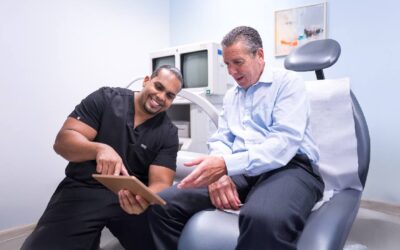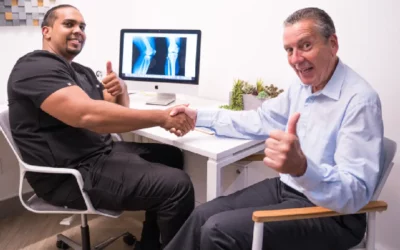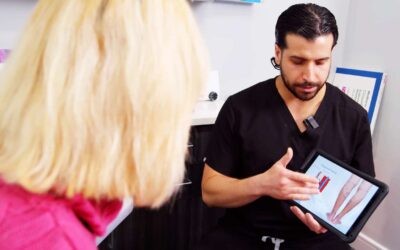What is a Vein Specialist Called?
What is a Vein Specialist Called?
The medical terminology for a vein specialist is “phlebologist.” The name comes from “phlebology,” which is the branch of medicine dealing with veins and vascular health. To become a phlebologist, a doctor must specialize in the diagnosis and treatment of vein disease, varicose veins, spider veins, and other vein problems. They must also specialize in the latest minimally invasive treatments for varicose veins, such as radiofrequency ablation, endovenous laser ablation, and sclerotherapy.
What Kind of Doctor do you see for Veins?
You can see any doctor for your veins, provided they have specialized training in the diagnosis and treatment of vein problems. Vein doctors come from numerous medical specialties, including anesthesiology, cardiology, dermatology, cosmetic surgery, and more. As long as the doctor has specialized training in vascular imaging and minimally invasive vein treatments, you can consult them for veins. You should ideally find vein doctors at reliable spider vein and varicose vein treatment centers in New Jersey.
Our spider vein and varicose vein treatment centers in Paramus and Clifton, NJ, are led by some of the country’s leading vein doctors. Our vein doctors have undergone advanced residency programs and fellowship training for vein disease. Furthermore, they’re officially board-certified by the American Board of Venous and Lymphatic Medicine, an organization that only certifies the top 1% of vein doctors. You can find the country’s best vein doctors at our vein treatment centers in New Jersey.
Does Drinking Water help Varicose Veins?
Drinking water is essential for general health and wellness. Staying hydrated improves most of your body’s processes, including skin health. It also improves blood circulation and increases the strength of your vein walls, which reduces the risk of vein problems and venous insufficiency. However, if you already have varicose veins, you have to consult a reliable vein doctor for minimally invasive vein treatments. Drinking water won’t treat varicose veins.
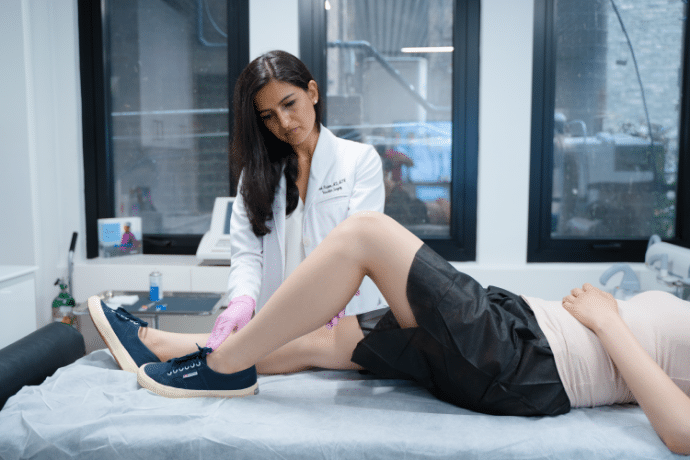
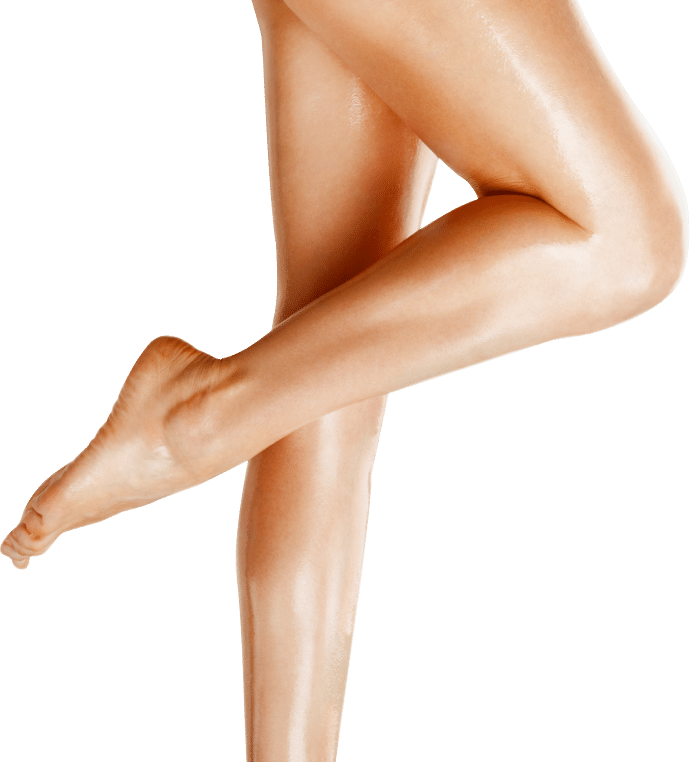
BOOK AN APPOINTMENT
Do you have any symptoms? Consult now with one of the Best Vein Specialist in New Jersey
Is it Good to Massage Varicose Veins?
Yes, massaging your varicose veins will alleviate the harsh signs and symptoms of chronic venous insufficiency, such as leg heaviness and leg cramps. It will send some of the accumulated blood towards your heart, thereby providing temporary relief from varicose veins. However, since your vein valves will still be damaged, blood will flow back into your leg veins later. As such, massage can alleviate the discomfort from varicose veins temporarily, but it can’t treat varicose veins or underlying chronic venous insufficiency.
Will Walking Help Varicose Veins?
Walking will help varicose veins by forcing some of the accumulated blood to flow back towards the heart. This might provide temporary relief from leg heaviness, but it won’t treat vein disease or varicose veins. However, you should walk regularly even if you don’t have varicose veins because it reduces the risk of vein disease.
How can I Stop Varicose Veins Getting Worse?
Varicose veins occur when your vein valves collapse and blood accumulates in your leg veins. The only way to treat varicose veins is undergoing minimally invasive varicose vein treatments in New Jersey. However, you can make some lifestyle changes to stop varicose veins from getting worse.
The following are some tips to prevent varicose veins from worsening:
- Wear compression stockings because they apply pressure on your leg veins, pushing the accumulated blood towards your heart. This alleviates pressure from your varicose veins.
- Engage in exercises that work your calf muscles, such as running, swimming, cycling, and yoga. These exercises will push accumulated blood towards your heart and alleviate discomfort.
- Elevate your legs above your heart’s level while sitting down. This will enlist gravitation force to push the accumulated blood from your legs to your heart.
- If you have a desk job, stand up every 15 to 30 minutes to stretch and walk around. This will prevent blood from pooling in your leg veins and encourage blood circulation.
- The aforementioned tips will minimize the risk of your varicose veins worsening, but they won’t treat varicose veins. The only way to stop varicose veins altogether is undergoing minimally invasive spider vein and varicose vein treatments in New Jersey.
What Happens if Varicose Veins are Left Utreated?
Varicose veins are essentially dilated blood vessels with excessive blood. As more blood accumulates in your leg veins, it will apply pressure on your vein walls and lead to vascular dilation. As your varicose veins continue dilating, their vein walls will weaken, increasing the risk of them bursting. If your varicose veins burst, you experience profuse bleeding, for which you have to be taken to an emergency room.
Additionally, you should also treat varicose veins because the underlying venous insufficiency is a chronic condition. Venous insufficiency starts with mild symptoms, such as leg heaviness, frequent leg cramps, and restless leg syndrome. If left untreated, you will eventually experience skin discoloration, skin disease, leg ulcers, and deep vein thrombosis, i.e., blood clots in your veins. That’s why you must seek varicose vein treatment the moment you notice varicose veins.
Do I Need to see a Doctor for Varicose Veins?
Yes. If you have varicose veins, you must consult a reliable vein doctor as soon as possible. We have incredibly talented and compassionate vein doctors at our vein treatment centers in New Jersey. They will examine your leg veins, review your medical history, and discuss your symptoms to determine if you have chronic venous insufficiency. Based on the diagnosis, they will curate the ideal vein treatment plan for you.
NJ Vein Doctors
Meet our team of New Jersey Vein Treatment Specialists
Vein Treatments are covered by most major medical insurances, including Medicare. Call us today to verify your insurance for FREE >
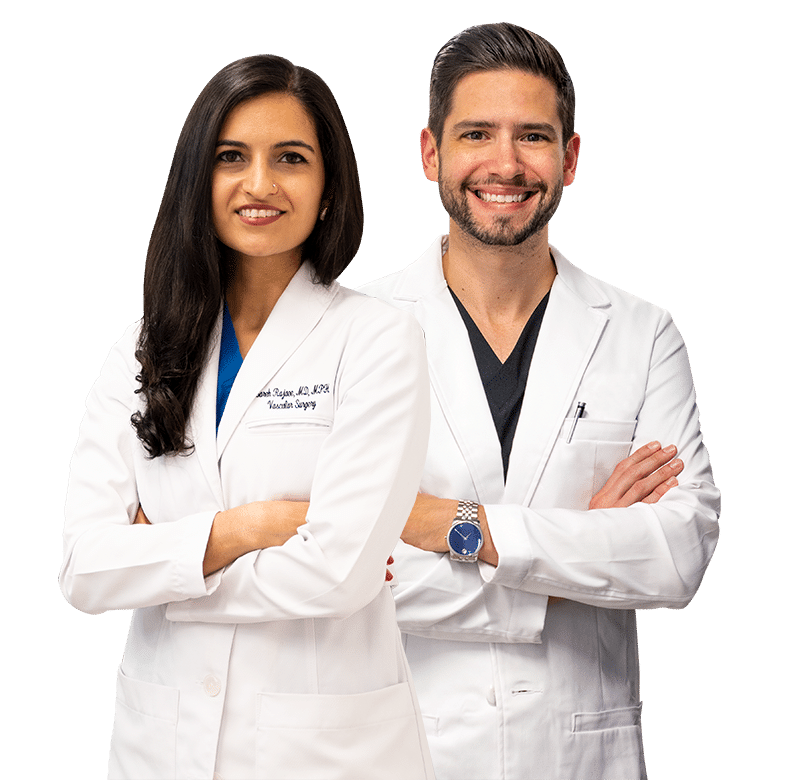
Meet our Team of Top Vein Specialists in New Jersey
Contact us
CALL US
Speak instantly with one of our team members; they will answer any questions you may have regarding insurance coverage, booking an appointment and our vein treatment locations. (973) 946-8082
BOOK APPOINTMENT
Visit our Book Appointment page and instantly request an appointment at the New Jersey vein center. We offer Free Insurance Verification before your appointment.
